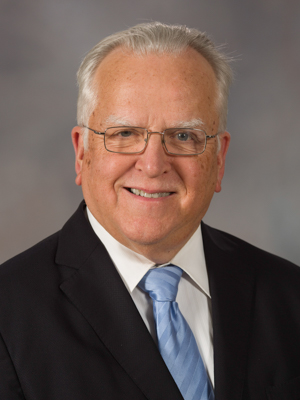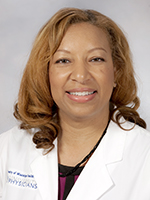UMMC Cancer Institute faculty decry unscientific cancer therapies
Published on Saturday, December 1, 2018
By: Cynthia Wall
A combination of fear of chemotherapy and being bombarded with online advertisements for miracle cures likely is behind results of a recent survey that shows nearly 4 in 10 U.S. residents think cancer can be cured with alternative therapies.
Those growing numbers dismay cancer care physicians at the University of Mississippi Medical Center Cancer Institute.

“As an oncologist I find it particularly tragic that patients and their families choose to employ therapies that have no scientific evidence behind them and serve to delay initiation of appropriate therapy,” said Dr. John Ruckdeschel, director of the UMMC Cancer Institute and a medical oncologist specializing in lung cancer.
The numbers come from the American Society of Clinical Oncology’s second annual National Cancer Opinion Survey conducted by The Harris Poll.
Poll respondents included those with cancer experience, such as patients and caregivers, and those without. The results showed 39 percent of those polled believe alternative therapies – such as enzyme and oxygen therapy, diet, or vitamins and minerals – will cure cancer.
Research recently published in the Journal of the National Cancer Institute showed patients with common cancers who choose alternative therapy had a 2.5 times higher mortality rate than patients who received standard cancer treatments such as surgery, chemotherapy, immunotherapy and radiation.
“When questioned by my patients, I tell them I don’t think there is scientific evidence for alternative therapy,” said Ruckdeschel, professor and a medical oncologist in the Interdisciplinary Thoracic (Lung) Cancer Program. “If they want to use the treatment as a complementary therapy in addition to traditional therapy, they can do that. I just want to know all the drugs they’re taking.”

Dr. Shawn McKinney, a surgeon in the UMMC Cancer Institute’s Interdisciplinary Breast Cancer Program, calls the situation “frustrating.”
“I’m very leery when they get their information either from someone else or from something they’ve read,” said McKinney, an associate professor of surgery. “It’s not usually anything of substantive value and it often doesn’t relate to their cancer type.”
She said patients who choose to use only alternative therapies sometimes return when those tactics don’t work.
“Their cancer is more advanced and our treatment options are more limited.”
As part of a program that develops individualized treatment plans based on a patient’s type and subtype of cancer, physical condition and, if feasible, preferences, McKinney advises patients that an anecdotal story about someone else’s experience with alternative therapy won’t fit all patients.
“I’m more an advocate of complementary as opposed to alternative therapies, something that will complement what we do,” she said.
McKinney said she also advises patients and their families to discuss those treatments with their doctors first.
Complementary therapies are activities or medications used along with traditional therapies. Those might include yoga, massage, mediation, acupuncture, vitamins or others. Alternative therapies are medications or activities used in an attempt to cure a disease without using traditional therapies.
Ruckdeschel said the amount of misinformation about alternative therapies is alarming.
“We’ve always had purveyors of alternative therapies preying upon patients and families who are facing a desperate clinical situation,” he said. “This is a problem that’s been made a thousand fold worse by the Internet.”
Other questions in the survey addressed participants’ fears about
• Being denied pain medications: Some 73 percent surveyed said new rules about access to opioids should not apply to cancer patients. McKinney agreed, but said, “The majority of cancer patients can be treated for pain and never need that level of medication.”
But “when people need it, they need it,” she said of opioid use. The CI programs usually call on a UMMC pain specialist to work with those patients.
“That’s the best alternative for them,” she said.
• Being unable to afford cancer care: 57 percent of participants said they would be most concerned about the financial effect on their families and paying for care; 54 percent said they’d be most concerned about dying of cancer or the pain of treatment.
Caregivers’ fears run higher: 61 percent said they or a family member had to take extreme steps to help pay for care. Those steps included everything from using savings to taking an additional job.
“Patients and their families are legitimately concerned about the exorbitant cost of medicines and the confusion and ever-changing requirements for insurance coverage,” Ruckdeschel said. “We feel it is important to openly discuss the financial impact of therapies.”
Cancer Institute staff use a patient assistance program to work with drug companies and nonprofit agencies to mitigate treatment costs when patients qualify.
“It is just not right to deny a patient potential curative therapy or even therapy that extends life in a meaningful way without providing a cure just because they didn’t have the resources,” he said. “It runs counter to what the profession of medicine is all about.”
To view the full survey results, visit https://www.asco.org/a dvocacy-policy/asco-in-action/national-survey-reveals-surprising-number-americans-believe.



